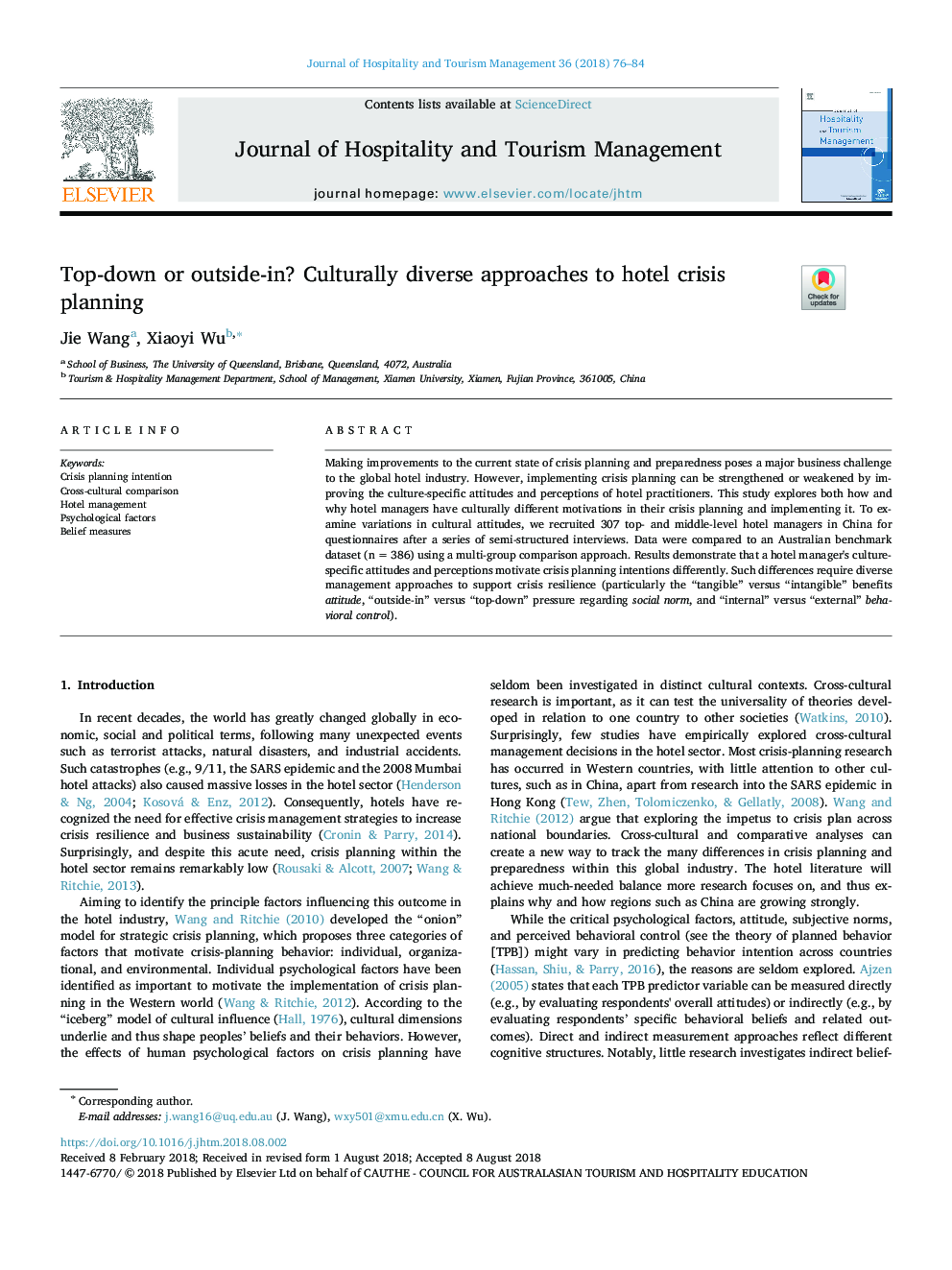| Article ID | Journal | Published Year | Pages | File Type |
|---|---|---|---|---|
| 7420287 | Journal of Hospitality and Tourism Management | 2018 | 9 Pages |
Abstract
Making improvements to the current state of crisis planning and preparedness poses a major business challenge to the global hotel industry. However, implementing crisis planning can be strengthened or weakened by improving the culture-specific attitudes and perceptions of hotel practitioners. This study explores both how and why hotel managers have culturally different motivations in their crisis planning and implementing it. To examine variations in cultural attitudes, we recruited 307 top- and middle-level hotel managers in China for questionnaires after a series of semi-structured interviews. Data were compared to an Australian benchmark dataset (nâ¯=â¯386) using a multi-group comparison approach. Results demonstrate that a hotel manager's culture-specific attitudes and perceptions motivate crisis planning intentions differently. Such differences require diverse management approaches to support crisis resilience (particularly the “tangible” versus “intangible” benefits attitude, “outside-in” versus “top-down” pressure regarding social norm, and “internal” versus “external” behavioral control).
Related Topics
Social Sciences and Humanities
Business, Management and Accounting
Tourism, Leisure and Hospitality Management
Authors
Jie Wang, Xiaoyi Wu,
